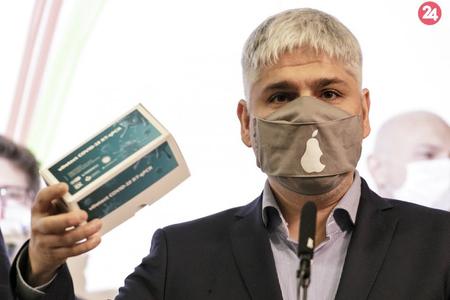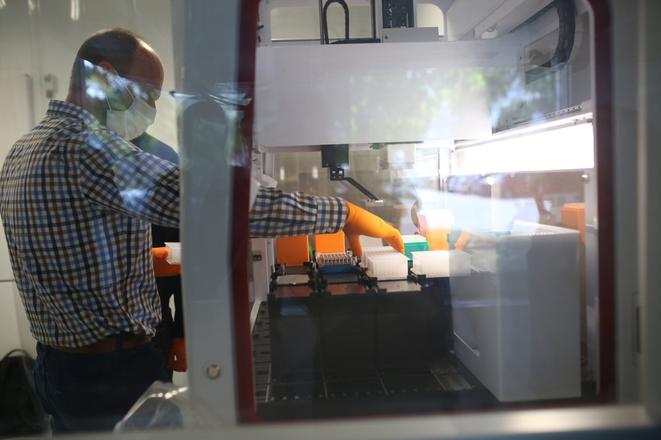Our paywall policy:
The Slovak Spectator has decided to make all the articles on the special measures, statistics and basic information about the coronavirus available to everyone. If you appreciate our work and would like to support good journalism, please buy our subscription. We believe this is an issue where accurate and fact-based information is important for people to cope.
The number of coronavirus tests carried out daily by the Slovak Academy of Sciences (SAV) may soon double.
The SAV Biomedical Research Centre received a financial gift of €500,000 from the Slovenská Sporiteľňa Foundation to purchase a testing device, testing sets and other equipment.
The daily capacity of testing in SAV’s Biomedical Research Centre is 368 samples. After the device is put into operation, it may increase to 736 samples, while fewer people will be involved.
“One of the most effective ways to fight the coronavirus is extensive testing,” said Róbert Mistrík, member of the permanent crisis staff, adding that the detection of the virus is a difficult operation comprised of many steps. “By using modern devices and isolation sets, the process becomes simpler, quicker and more reliable.”
Peter Krutil, CEO of Slovenská Sporiteľňa, stressed the need for more testing. He hopes that thanks to the new device, Slovakia will achieve this goal.
Reducing time for RNA isolation
The testing at SAV currently has two phases. In the first one, the virus RNA is manually isolated from a sample taken from the nasopharynx. In the second, a reverse transcription of RNA to DNA followed by a PCR reaction is carried out on a special device. The first phase is especially time demanding, which is why it is difficult to increase the number of daily tests.

The special device purchased from the funds of the Slovenská Sporiteľňa Foundation should help speed up and improve the RNA isolation.
“It will be possible to accelerate the process and make it more efficient as most of the RNA extraction from clinic samples will be done by a machine,” said virologist Boris Klempa. “As a result, the process will be quicker, without the risk of mistakes, and absolutely standardised.”
At the same time, it will unburden employees who will be free to prepare new samplings and further processes instead, he added.
The new device is currently being installed and will soon be in operation. It will also be used after the pandemic is over, as part of the virology research so that the country is better prepared for new infections.


 The Biomedical Research Centre of SAV will soon be able to use new device for coronavirus tests. (source: Courtesy of Slovenská Sporiteľňa)
The Biomedical Research Centre of SAV will soon be able to use new device for coronavirus tests. (source: Courtesy of Slovenská Sporiteľňa)